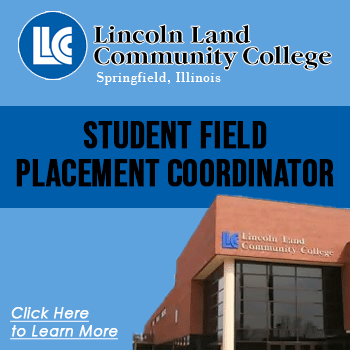This job has Expired

Post Doctoral Research Scholar
Job Description
| About Us: | Boise State University, powered by creativity and innovation, stands uniquely positioned in the Northwest as a metropolitan research university of distinction. Learn more about Boise State and the City of Boise at https://www.boisestate.edu/about/boise-and-beyond/ . Boise State University is committed to increasing the diversity of its faculty, staff, students, and academic program offerings and to strengthening sensitivity to diversity throughout the institution. Boise State University is an affirmative action/equal opportunity employer, and members of historically underrepresented groups are especially encouraged to apply. We are a welcoming campus that supports diversity and inclusion. |
|---|---|
| Job Summary/Purpose: | Serves in a temporary position that enables an individual with their Ph.D. to continue their training as a researcher and gain skills and experience that will prepare them for their research career in academia or elsewhere. As a postdoc, the position can perform mostly independent research, collaborate on a multi-scholar research initiative, or even may have lead responsibility for discrete components of a larger research project or program, all while under the general direction of a senior or principal researcher. A postdoctoral research position is available for a joint project between the department of Biological Sciences at Boise State University and the US Geological Survey’s Forest and Rangeland Ecosystem Science Center in Boise, Idaho. The successful applicant will work with a collaborative team of ecology researchers and land managers on applied research investigating the controls over plant establishment associated with rehabilitation and restoration treatments in arid and semi-arid rangelands for the purpose of improving forecasts of restoration outcomes.
This position is an opportunity to conduct applied quantitative research with a direct link to natural resource management and is funded for at least 2 years.
The postdoc will develop investigations that take advantage of extensive existing data on rehabilitation and restoration actions on public rangeland. The research will involve conducting retrospective analyses of restoration seeding projects to improve understanding of the environmental correlates of plant establishment and the reliability and uncertainty of a drought forecasting tool in the USGS Land Treatment Exploration Tool (LTET) in relation to restoration seeding outcomes. This analysis will be conducted on a random sample of projects in the USGS Land Treatment Digital Library (LTDL), where restoration actions are well documented, and outcomes are known from robust monitoring data. Preliminary estimates indicate this analysis could be conducted across thousands of projects on BLM lands in the last 20 years, which would provide a distribution of outcomes for different seeded species under different seeding methods and ecological site conditions. The post-doc will be responsible for developing the statistical models for this research, presenting the findings to partners and at scientific meetings, publishing the findings, and working with software developers to integrate results into decision support tools. The postdoc will be located in Dr. Allison Simler-Williamson’s lab at Boise State University but will receive co-mentorship from Dr. David Pilliod (USGS) and opportunities to collaborate with other scientists at the USGS Forest and Rangeland Ecosystem Science Center . |
| Level Scope: | After earning a Ph.D., the next step in the academic or research career path is often a postdoc. A postdoc is a continuation of a researcher’s training that enables them to further their professional development and start to transition from student to independent researcher. Postdocs also often take additional leadership or teaching responsibilities in their laboratory or department. These positions are usually two to three years and it is not unusual for a researcher to do more than one postdoc. |
| Essential Functions: | 60% of Time the Postdoctoral Research Fellow must:
35% of Time the Postdoctoral Research Fellow may:
5% of Time the Postdoctoral Research Fellow may:
|
| Knowledge, Skills, Abilities: | Basic
|
| Minimum Qualifications: | Requires a minimum of a Ph.D. or equivalent terminal degree in a relevant discipline. |
| Preferred Qualifications: | Preferred
|
| Salary and Benefits: | Salary $62,000/annually. Boise State University is committed to offering a benefits package that provides health and financial protection plans as well as resources to promote health and well-being. Our program provides flexibility so you can choose the benefits that are right for you and your family. Learn more about our benefit options at https://hrs.boisestate.edu/benefits/ . |
| Required Application Materials: | Cover letter describing your interest in this position and your relevant experience, CV, and the names and contact information of 3 references. |
*Please mention you saw this ad on AcademicJobs.*




